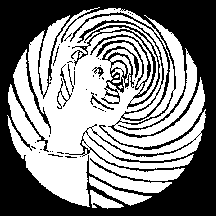
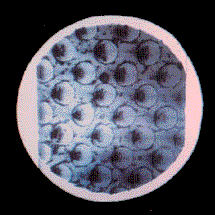
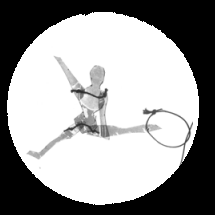
Diascoop
consists of:
Anne Marie van Sprang
Jop Horst
Ida Lohman
Yarre Stooker
The collective is regularly
extended with some guest artists. 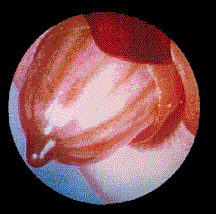
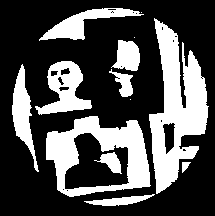 |
The beginning of the nineteenth
century. An old, strolling lanternist does his tricks. It seems that
the spectators have forgotten the world around them completely. They peer
with a mixture of amazement and respect at the screen. The magician on the
picture there waves his magic wand a lot and then, suddenly, coming from
thin air, an ugly green, smirking devil appears, just in front of their
very eyes. The visitors of the inn start back frightened. Some of them
leave the messy bar as fast as they can.
Two centuries afterwards Diascoop, a
Dutch artists' collective which 'blows the dust off the magic lantern',
makes the magic of the moving lantern slides visible again. Whereas most
modern lanternists try to resemble the atmosphere and contents of the
early performances as best they can, Diascoop succeeds in creating a brand
new art form using an age-old medium. In a direct relationship with their
audience, miniature images are enlarged to two meter high projections
with an unequalled sharpness and magnificent display of colour.
The spectators see several magic
lanterns, which throw their beams of light through the auditorium in a
dynamic way. The artists also accompany the self made glass lantern
slides, painted with transparent colours or pasted with paper,
pieces of string or whatever else, with exciting stories, melancholic songs or disturbing sounds. For the receptive viewer it's a
real treat for the senses: a cow can suddenly change colour, a
ballet-dancer dances over the heads of the audience towards the silver screen
and Mirabella does some tricks with a seal or a lion.
It was the simple technique of the
magic lantern that stimulated the members of Diascoop to develop their
'miniature performances' in which images, sound, voice and movement are
forged together to a surprising, complex show.
Most of all the transparency of the
magic lantern as an artistic medium fascinates them. The performances
create a convincing, but also at he same time transparent illusion of
motion. It's clear that the projections are set up from artificial, hand
made images, like a small cardboard boat, cut-outs and painted pictures.
The spectator is, just like two centuries ago, thrilled to enter this
artificial world and to experience this as reality. |